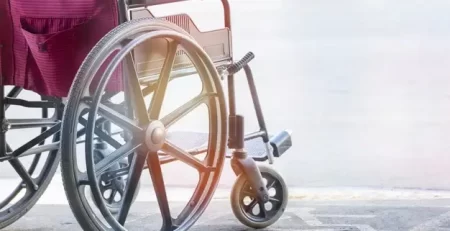- No products in the cart.
Common conditions that necessitate mobility assistance
People have a range of reasons for needing mobility equipment to facilitate their independence and improve their quality of life. Some people may have issues with balance, others may have a diagnosis that impairs the function of their lower body. No matter what the reason you need assistance walking, there is a piece of equipment that suits your needs.
Parkinson’s
As a condition that affects the nervous system, Parkinson’s can lead individuals to experience abnormal walking patterns, impaired balance, a hunched over posture, and difficulty swinging their arms to assist with walking. Each of these symptoms can cause someone to frequently fall, have a severe fear of falling, or demonstrate weakness that prevents them from safely walking. Some individuals with early stage Parkinson’s may be able to get around their environment using only a walker for support. However, individuals with late stage Parkinson’s may prefer (or require) the stability of a wheelchair, either manual or caregiver-attended depending on their abilities.
Multiple sclerosis
Individuals with multiple sclerosis have an immune system that wears down the nerves. This progressive condition can cause a variety of symptoms ranging from cyclical pain, weakness, paralysis, fatigue, poor balance and coordination, changes in visual function such as depth perception and acuity. These symptoms can occur on and off over the course of a person’s life and fluctuate based on factors like stress and sleep deprivation.
For this reason, someone living with multiple sclerosis may benefit from using a wheelchair (along with other adaptive equipment such as a tub bench and raised toilet seat) during the days and weeks they experience an increase in symptoms. During the other periods of time where their symptoms ease up, most individuals with multiple sclerosis can use a rollator to accommodate for fatigue or loss of coordination that may occur during walking.
Osteoporosis
This condition may not at first appear to warrant mobility assistance, because people often do not experience any symptoms until they suffer a fractured bone. Individuals with osteoporosis are at an increased risk for experiencing fractures due to a decrease in bone mass that makes their bones brittle and weaker than most. Once an individual has multiple fractures, they may experience consistent pain, fear of falling, a hunched posture, and trouble walking. As a person ages, they also have difficulty recovering from fractures, which can cause permanent damage or loss of function to the joints of the lower body. An individual with uncomplicated osteoporosis may benefit from using a walker to assist with improving their posture and realigning their center of gravity while preventing falls. But some individuals with more severe cases of osteoporosis who are at a significantly higher risk for fracture may benefit from using a wheelchair in environments where they feel unsteady or unsafe.
Stroke
Individuals who experience brain damage, often occurring from a bleed or loss of oxygen to parts of the brain bleed, suffer from what is called a stroke. As with many conditions we have mentioned here, strokes can vary in severity and, therefore, outward appearance. Some individuals with a history of a stroke may not experience any changes in their daily function. However, other stroke survivors may experience partial or total loss of movement on one or both sides of their body. This can lead to trouble balancing, seeing, moving, and walking. Individuals with complete loss of motion in one arm and/or one leg may be able to use a manual wheelchair to preserve the function of the unaffected side of their body and assist in strengthening the weaker side. Other individuals with more extensive motion loss who still have good safety awareness along with function in parts of their hand can operate a power chair to assist them in navigating the community. On the other hand, individuals with minor strokes may suffer from some balance and coordination issues that make walking more difficult. In these cases, a simple walker or rollator can provide added stability and the option of resting when needed.
Epilepsy
Those living with epilepsy are at risk for experiencing seizures, which are periods of brain disturbance that cause people to convulse and temporarily lose control of their body. You can imagine why this is dangerous and can impact someone’s ability to walk readily throughout their environment. Many individuals who experience frequent, uncontrolled seizures due to epilepsy may benefit from using a wheelchair to ensure their safety in the event that a seizure occurs. Manual wheelchairs are typically appropriate for these individuals, since epilepsy does not often cause health concerns outside of seizures. However, people with epilepsy may have other health concerns that impair their mobility and can benefit from wheelchair use.
There are a variety of reasons why someone may need a variety of mobility assistance. Walkers, rollators, and wheelchairs can be good pieces of mobility equipment for people who have difficulty walking for any reason. Each person may need various add-ons, adjustments, and maintenance to make their piece of equipment the most suitable for their health needs. Be sure to speak with a mobility consultant to choose the device that is best for you.















